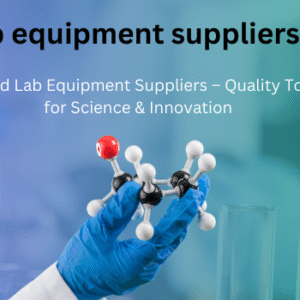Artificial Intelligence (AI) is no longer just a futuristic concept—it’s a driving force behind innovation in industries ranging from healthcare and finance to retail and logistics. Businesses are increasingly seeking AI-powered solutions to automate processes, gain insights, and deliver personalized customer experiences. However, developing and deploying AI successfully requires specialized skills, tools, and experience. That’s why choosing the right AI development company is critical to your project’s success.
But with so many firms offering AI services, how do you decide which one is right for your needs?
In this post, we’ll walk you through the most important factors to consider when selecting an AI development partner, so you can make an informed, strategic decision.
1. Expertise in AI Technologies and Frameworks
At the core of any AI development company is its technical competence. The right partner should have a deep understanding of:
Machine Learning (ML)
Deep Learning (DL)
Natural Language Processing (NLP)
Computer Vision
Reinforcement Learning
They should also be familiar with popular tools and frameworks such as:
TensorFlow
PyTorch
Keras
Scikit-learn
OpenCV
Hugging Face Transformers
LangChain (for LLMs)
Ask about the technologies they use, and ensure they can match your project requirements with the appropriate tools.
2. Domain Experience
AI is not a one-size-fits-all solution. A company may be technically skilled but lack the industry-specific experience required to deliver real value in your context.
For example:
An AI company that’s worked with healthcare firms will better understand HIPAA compliance and patient data privacy.
A company experienced in e-commerce will know how to implement recommendation engines, demand forecasting, and customer sentiment analysis.
Tip: Look for companies that can showcase case studies or client references in your industry.
3. Strong Portfolio and Case Studies
A reputable AI development company should be able to provide concrete examples of their past work. Their portfolio should demonstrate:
How they’ve solved real-world business problems using AI.
Measurable results (e.g., cost savings, increased efficiency, revenue growth).
Their approach to deploying and scaling AI solutions.
When reviewing case studies, focus on:
The problem they addressed.
The AI solution they implemented.
The outcome or ROI for the client.
This will help you assess whether their expertise aligns with your goals.
4. Customization and Scalability
AI projects are not plug-and-play. Every business has unique datasets, processes, and goals. The right partner should offer custom AI development, not just pre-packaged solutions.
Ask:
Can they tailor models to your data?
Do they offer flexibility in model retraining and iteration?
Can their solutions scale as your business grows?
Scalability is especially important if you plan to expand features, user base, or markets. Look for companies that adopt modular, cloud-native, and API-first architectures.
5. End-to-End Services
Building an AI solution involves multiple phases, including:
Discovery and ideation
Data collection and preparation
Model development
Testing and validation
Deployment
Monitoring and maintenance
A top-tier AI development company should offer end-to-end services, from concept to post-launch support. This ensures smoother handoffs, faster iterations, and fewer communication gaps.
Some firms also offer AI consulting services, which can help you evaluate use cases before diving into development.
6. Data Strategy and Governance
AI is only as good as the data it’s trained on. If your company doesn’t already have clean, well-labeled datasets, your AI partner should help with:
Data sourcing and integration
Data cleaning and annotation
Data security and compliance
They should also be knowledgeable about:
GDPR, CCPA, or other data protection regulations.
Ethical AI principles, including fairness and transparency.
Bias detection and mitigation techniques.
This ensures that your AI system won’t just be powerful, but also responsible and compliant.
7. Agile Development and Collaboration Style
AI projects require experimentation, iteration, and continuous feedback. Choose a partner that follows agile development practices, such as:
Regular sprints and check-ins
Fast prototyping (MVPs)
Transparent communication channels
Collaborative tools like Jira, Slack, or Confluence
You’ll want a team that treats your business as a partner, not just a client. Their willingness to understand your needs, brainstorm ideas, and adapt to your feedback is key to success.
8. Post-Deployment Support
The launch of your AI system is just the beginning. AI models degrade over time if they’re not monitored, retrained, or fine-tuned. A good AI development company should provide:
Ongoing support and model maintenance
Performance monitoring dashboards
Bug fixes and updates
Retraining services with new data
Make sure you understand what’s included in their post-launch support packages—and whether it meets your long-term needs.
9. Cost Transparency and ROI Focus
AI development can be a significant investment, so clarity around pricing is crucial. Look for companies that offer:
Transparent pricing models
Detailed proposals and timelines
Breakdowns of deliverables and milestones
But don’t just choose the cheapest option. Instead, focus on ROI: How will this project reduce costs, increase efficiency, or drive revenue over time?
Ask if they provide proof-of-concept (PoC) stages to validate ideas before committing to full-scale development.
10. Client Testimonials and Reputation
Reputation matters—especially in a field as complex and fast-evolving as AI. Look for client reviews on:
Clutch.co
G2
GoodFirms
Google Reviews
LinkedIn Recommendations
You can also ask for direct client references. A trustworthy company should have no problem connecting you with a previous client for an honest review of their work, communication, and delivery.
11. Security and Infrastructure
AI systems often deal with sensitive or mission-critical data. Ensure the AI development company follows best practices in:
Data encryption (at rest and in transit)
Secure API design
Role-based access control
Cloud infrastructure management (AWS, Azure, GCP)
DevOps and MLOps pipelines
The right partner should prioritize security from day one, not as an afterthought.
12. Innovation and Research Focus
AI is evolving rapidly. You don’t want a company that’s stuck in last year’s trends. Instead, look for signs that your prospective partner is actively investing in R&D:
Do they publish whitepapers or blog posts?
Are their engineers contributors to open-source AI projects?
Are they experimenting with cutting-edge tools like Generative AI, LLMs, or AutoML?
This kind of forward-thinking culture ensures that your project will be built with the latest (and most effective) methods.
Conclusion
Choosing the right AI development company is not about ticking boxes—it’s about finding a long-term partner who understands your business, speaks the language of innovation, and is committed to delivering real, measurable results.




